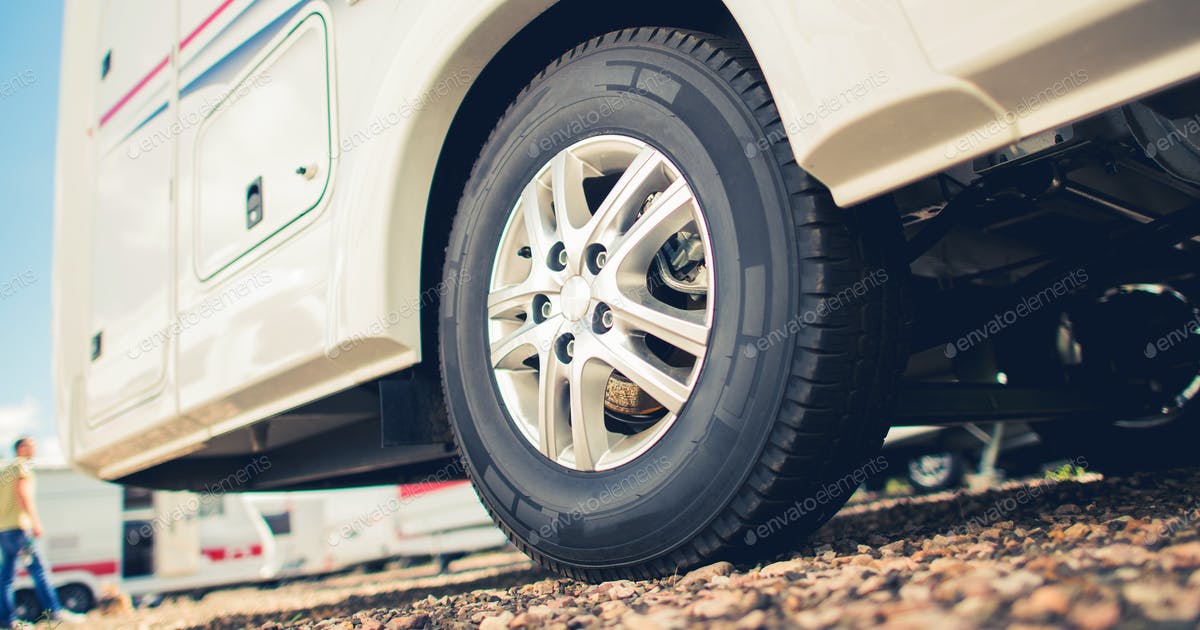Importance of RV Tire Maintenance | Baird, TX

 |
 |
 |
|---|---|---|
There’s no vehicle component more critical than the tire. Whether you’re driving a motorcycle, car, SUV, truck, motorhome, or towing an RV, the only part of the vehicle that makes contact with the road is the tires. As a result, tires can have an impact on everything from ride quality and balance to fuel economy and safety. That makes it critically important that you stay on top of tire maintenance, particularly if those tires are supporting the considerable weight of an RV.
Get Familiar with Your Tire Sidewall
You should be able to find just about all of the important information you need regarding your RV’s tires on their sidewall. It includes the tire size, its construction type, manufacturing date, maximum load, any special warnings, and more. Learn to read this information so you can refer to it at a moment’s notice. The most important piece of information you should know is the inflation pressure — how much load the tire can carry and the pressure it needs to have to do so.
Importance of Tire Pressure
Tires should always be inflated up to the manufacturer’s recommendation. Overinflating or underinflating your tires leads to excessive wear and tear and can increase the risk of outright failure on the road. Overinflated tires are more likely to blow out when hitting potholes and other nasty bumps while underinflated tires may not adequately support the weight of the RV. They also increase rolling resistance, increasing friction and reducing fuel economy. RV tires take more punishment than regular tire cars, so invest in a good tire gauge and get in the habit of routinely checking your tire pressures — particularly when you experience major altitude or temperature changes, both of which have an impact on pressure.
Consider Using Nitrogen Air
Many RV owners swear by using nitrogen air to inflate their tires — and for good reason. Regular air is made up of about 78% nitrogen, 21% oxygen, and trace amounts of carbon dioxide, water vapor, and noble gasses. All of those extra elements can cause significant problems.
For example, the oxygen molecules inside the tire will gather on the inner lining over time, leading to loss in pressure and increased wear. The water vapor is even worse, contributing to rim corrosion and making your tire’s pressure more sensitive to changes in outside temperature.
Nitrogen is more expensive, but that extra cost has tangible benefits. In addition to eliminating the issues that come with oxygen, tires filled with nitrogen have almost no remaining moisture inside. That translates to more consistent and reliable pressures, a big advantage on long trips.
Weight Distribution Matters
You probably know that your RV is rated to handle a certain amount of weight. However, each axle and each tire can handle only a portion of that weight. It’s thus important that the weight inside your RV is distributed such that none of the tires exceed their maximum weight capacity. If you have excess weight loaded at a single corner of the RV, for example, it could lead to the tire in that corner failing on the road, which could be catastrophic.
Even if there are no concerns regarding exceeding maximum weight limits, the balance of weight can have a big impact on your RV’s behavior while on the road. Even weight distribution will make the unit more balanced and easier to tow. Consider the layout of your RV and try to keep weight as even as possible from front to back and side to side.
RV owners should always stay on top of tire maintenance. For more information about tires and help with RV maintenance, visit Hanner RV Supercenter in Baird, Texas.


